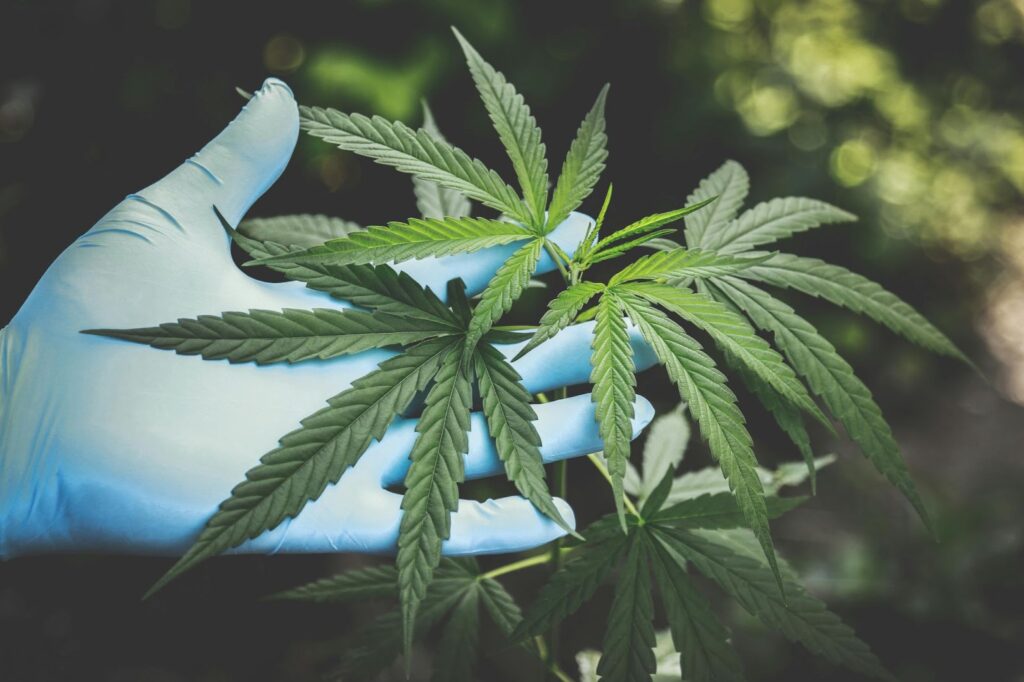In recent years, cannabis and its derivatives have gained significant attention for their potential therapeutic benefits. Among these, cannabidiol (CBD) and tetrahydrocannabinol (THC) are the two most discussed cannabinoids. If you’re exploring options for managing anxiety, you might wonder: CBD vs. THC—which is more effective? This article delves into the differences between these cannabinoids, their impact on anxiety, and how obtaining an Oklahoma Medical Marijuana Card could be part of your journey to finding relief.
Understanding CBD and THC
CBD vs. THC is a topic that often comes up when discussing cannabis-related treatments. Both are cannabinoids found in the cannabis plant, but they interact with the body in different ways.
CBD: The Non-Psychoactive Cannabinoid
Cannabidiol, or CBD, is a non-psychoactive compound, meaning it does not produce a “high” effect. Instead, it interacts with the body’s endocannabinoid system to promote a sense of calm and balance. CBD has been researched for its potential to reduce anxiety, alleviate pain, and improve sleep.
Many people prefer CBD for anxiety management due to its calming effects without the intoxicating effects associated with THC. Studies suggest that CBD may modulate serotonin levels, a neurotransmitter that plays a key role in regulating mood and anxiety. Moreover, CBD is generally well-tolerated and has a favorable safety profile, making it a popular choice for those seeking natural relief from anxiety.
THC: The Psychoactive Cannabinoid
Tetrahydrocannabinol, or THC, is the psychoactive component of cannabis that produces the characteristic “high.” Unlike CBD, THC interacts with cannabinoid receptors in the brain, particularly the CB1 receptors, which can influence mood, cognition, and perception.
THC has been shown to have anxiolytic (anxiety-reducing) properties in some studies, but it can also lead to increased anxiety in certain individuals. The effects of THC can vary significantly from person to person, with some experiencing relaxation and others feeling heightened anxiety or paranoia. Therefore, THC’s suitability for anxiety management often depends on individual response and dosage.
Comparing CBD and THC for Anxiety Management
When it comes to CBD vs. THC for anxiety, the choice largely depends on personal preferences and individual reactions to each cannabinoid.
Effectiveness of CBD
CBD has garnered considerable attention for its potential to alleviate anxiety without the psychoactive effects of THC. Research indicates that CBD may help reduce symptoms of generalized anxiety disorder (GAD), social anxiety disorder (SAD), and post-traumatic stress disorder (PTSD). Users often report a calming effect, improved sleep, and a reduction in anxiety-related symptoms.
Moreover, CBD is available in various forms, including oils, capsules, edibles, and topical applications, providing flexibility in how it is consumed. This versatility allows individuals to choose the form that best suits their lifestyle and therapeutic needs.
Effectiveness of THC
THC’s effectiveness in managing anxiety is more complex. While some users report positive effects, including reduced anxiety and improved mood, others may experience increased anxiety or paranoia. The psychoactive nature of THC can also lead to impaired cognitive function and altered perception, which may not be ideal for everyone.
The variability in THC’s effects highlights the importance of careful dosage management and understanding individual tolerance. For those who find THC beneficial, it is often used in combination with CBD to balance the psychoactive effects and enhance overall therapeutic benefits.
Obtaining an Oklahoma Medical Marijuana Card
If you’re considering using cannabis for anxiety management, obtaining an Oklahoma Medical Marijuana Card might be a beneficial step. The card allows you to legally access medical cannabis, including both CBD and THC products, within the state of Oklahoma.
Benefits of a Medical Marijuana Card
Having an Oklahoma Medical Marijuana Card provides several advantages:
- Legal Access: The card ensures that you can legally purchase and use cannabis products, including those containing THC, which may otherwise be restricted.
- Customized Treatment: With a medical marijuana card, you can work with a healthcare provider to tailor your treatment plan, selecting products and dosages that best meet your needs.
- Variety of Products: Medical cannabis dispensaries offer a wide range of products, from high-CBD strains to balanced CBD/THC formulations. This variety allows you to experiment and find the right combination for your anxiety management.
Steps to Obtain a Medical Marijuana Card
- Consult a Physician: Schedule an appointment with a healthcare provider who is knowledgeable about medical cannabis. They can evaluate your condition and discuss whether a medical marijuana card is appropriate for you.
- Submit an Application: Once your physician recommends medical cannabis, you will need to submit an application to the Oklahoma Medical Marijuana Authority (OMMA), including a physician’s recommendation and other required documentation.
- Receive Your Card: After approval, you will receive your medical marijuana card, granting you legal access to purchase cannabis products from licensed dispensaries.
A Balanced Approach to Anxiety Management
Choosing between CBD vs. THC for anxiety management requires a thoughtful approach. Both cannabinoids have potential benefits, but their effects can vary based on individual response and dosage. CBD is often favored for its non-psychoactive, calming effects, while THC might be used by those who can tolerate its psychoactive properties and seek its potential anxiolytic benefits.
With the option to obtain an Oklahoma Medical Marijuana Card, you gain access to a range of cannabis products that can be tailored to your specific needs. Whether you prefer CBD, THC, or a combination of both, working with a knowledgeable healthcare provider can help you develop a personalized treatment plan that enhances your overall well-being.
Frequently Asked Questions
What is the difference between CBD and THC?
CBD (cannabidiol) is a non-psychoactive cannabinoid that helps promote relaxation and balance without causing a high. THC (tetrahydrocannabinol) is the psychoactive compound in cannabis that produces a high and can affect mood and perception.
Can CBD help with anxiety?
Yes, research suggests that CBD may help reduce symptoms of anxiety, including generalized anxiety disorder, social anxiety disorder, and post-traumatic stress disorder. It is known for its calming effects and overall positive impact on mood.
Is THC effective for anxiety?
THC can have mixed effects on anxiety. While some individuals find it helpful in reducing anxiety, others may experience increased anxiety or paranoia. Its effectiveness largely depends on individual tolerance and dosage.
How can I get an Oklahoma Medical Marijuana Card?
To obtain an Oklahoma Medical Marijuana Card, you need to consult with a physician who will evaluate your condition. You must then submit an application to the Oklahoma Medical Marijuana Authority (OMMA) with the required documentation.
Can I use both CBD and THC for anxiety?
Yes, some people find that using a combination of CBD and THC can balance the effects and enhance therapeutic benefits. Consulting with a healthcare provider can help determine the right combination and dosage for your needs.
Exploring CBD vs. THC for anxiety offers various possibilities for managing symptoms effectively. Whether you choose CBD for its calming properties, THC for its potential benefits, or a combination of both, obtaining an Oklahoma Medical Marijuana Card can facilitate your access to tailored treatments. With the right approach and professional guidance, you can find relief and improve your quality of life.


